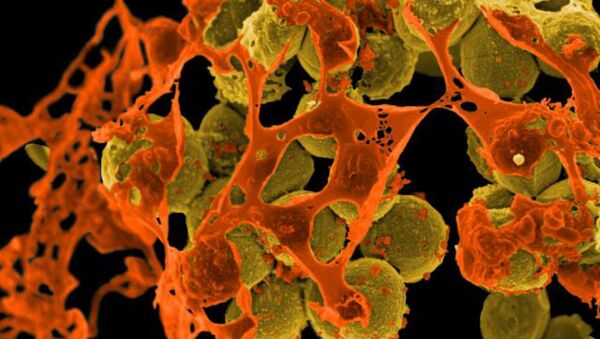Superbugs are especially worrying to physicians and public health officials globally since even powerful, last-resort antibiotics are futile against them. Since 2011, KCDC has surveyed 9,300 bacteria samples from Korean hospitals. In those samples, scientists discovered three cases of Mobile Colistin Resistance-1 (MCR-1) genes—genes which are ultimately capable of making bacteria antibiotic-resistant, Korea Joongang Daily reports.
MCR-1 converts bacteria to be resistant to the antibiotics colistin and carbapenem, which physicians usually deploy only in last-ditch situations for patients with multi-drug-resistant infections, Korea Joongang Daily notes.
MCR-1 is considered a mutated cousin of another bug called the "nightmare bacteria," carbapenem-resistant enterobacteriaceae (CRE). And CRE is incredibly lethal: the superbug can kill up to 50 percent of patients who become infected, according to the US Centers for Disease Control and Prevention.
What’s worse is that attempts to combat the superbugs could reinforce their deadly strength. “We do not know much about the characteristics of this bacteria, so we need to be cautious because if we use too much carbapenem-type antibiotics, it may develop further resistance, mutate and spread,” Park Chan, a senior KCDC official, said in a statement. Superbugs are in every country, according to the World Health Organization, meaning basically everyone is at risk.



